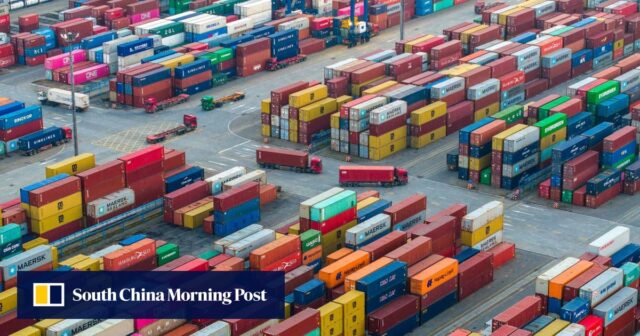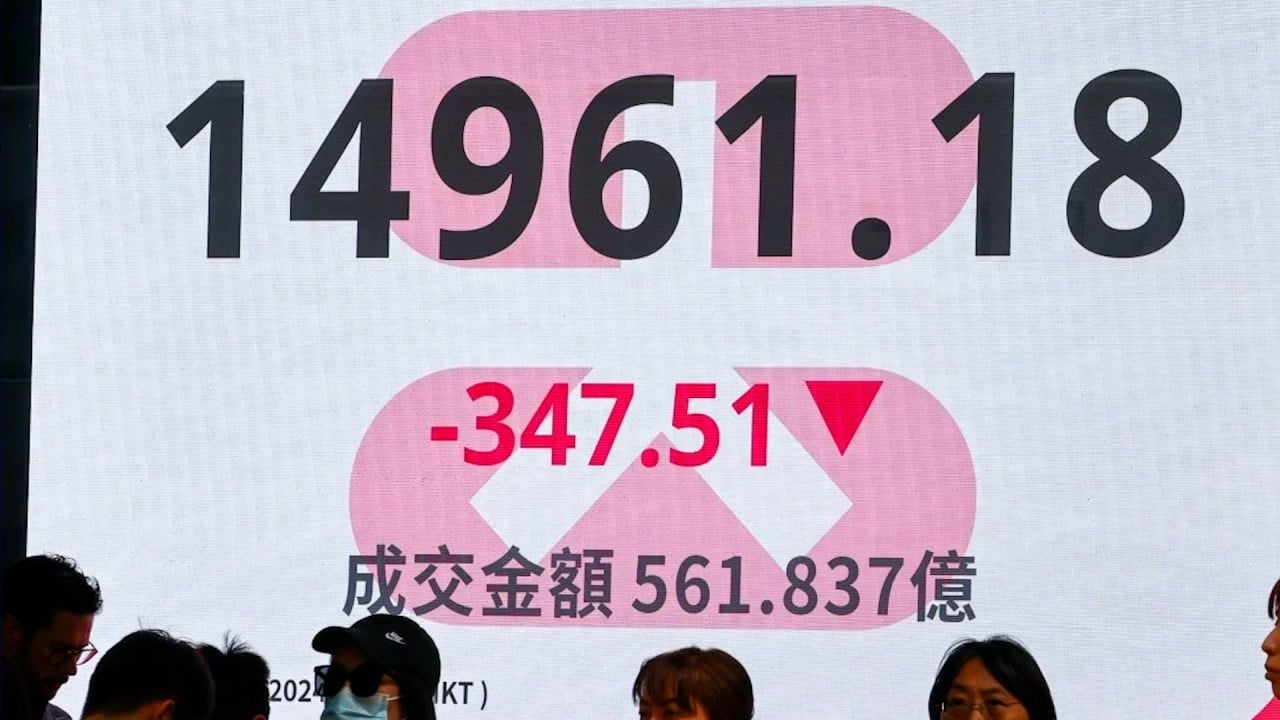“The 1.5 per cent growth was … a reflection of strong resilience of the China-Africa trade,” Jiang Wei, head of the commerce ministry’s West Asian and African affairs department, told reporters on Wednesday.
Last year, the value of China’s total global trade slumped 5 per cent from the previous year to US$5.93 trillion.
According to Chinese customs data, in 2023 China recorded a drop in trade with its top five trading partners in Africa – South Africa, Angola, Nigeria, the Democratic Republic of Congo (DRC) and Egypt – which are predominantly resource-rich nations.
Analysts said the drop in imports from Africa could partly be attributed to the drop in the price of key minerals, metals and oil that China mostly imports from some African countries. For instance, a tonne of cobalt averaged US$63,739 in 2022 but the price had dropped to below US$30,000 by the end of 2023.
China’s ‘stadium diplomacy’ looking for a win at the Africa Cup of Nations
China’s ‘stadium diplomacy’ looking for a win at the Africa Cup of Nations
Lauren Johnston, a China-Africa expert and an associate professor at the University of Sydney’s China Studies Centre, noted that the 2023 trade figures related to price volatility for resources such as oil and copper.
China imports raw materials from the continent, including oil, copper and aluminium, whose prices dropped in the past year.
“A fall in these and Africa’s trade earnings will fall, even if volumes stay the same – and sometimes even if they grow,” Johnston said. “To a large extent today, Africa’s trade balance depends on the price of oil.”
The price of Brent crude oil averaged US$83 a barrel in 2023, down from US$101 per barrel in 2022, a drop mostly driven by an oil supply shortage after fears over the Russia-Ukraine war gripped the markets, sending prices falling.
However, a drop in oil prices is good news for Africa’s own oil importers, which tend to be the economies with a better chance of industrialisation. “It’s not necessarily bad news,” Johnston said.
Carlos Lopes, a professor in the Nelson Mandela School of Public Governance at the University of Cape Town in South Africa, said the modest changes also reflected a continuing lower demand from China despite the ascending curve starting in 2022.
But Lopes said economic growth, consumer demand and overall economic performance in both China and Africa were still recovering from the pandemic and the impact of the war in Ukraine.
“It is also clear that the Chinese government has been adjusting its trade policies, tariffs and regulations considering the tensions with the US and climate-related developments,” Lopes said.
“It is also important to bear in mind that changes in exchange rates have affected the competitiveness of goods from Africa, influencing trade volumes and values.”
China has come under fire for its vast trade surplus with most parts of the world, with some accusing it of promoting an unhealthy balance by selling finished products to Africa while buying mostly raw materials.
Over the past two years, about two dozen African nations have benefited from Beijing’s decision to waive tariffs on exports from the “least developed countries” in Africa.
Beijing has said it aims to import products worth US$300 billion from Africa by 2024.
But Johnston said addressing a trade imbalance would not happen overnight.
China investors eye Africa’s Mauritius as it goes green, tries to sweeten deals
China investors eye Africa’s Mauritius as it goes green, tries to sweeten deals
While increasing agricultural exports could improve trade balance with individual countries and raise the income of some rural communities, it is unlikely to make a big dent in Africa-wide trade balances in the near future, if ever, unless there were large-scale exports, such as the soybean exports from the US and Brazil or dairy from New Zealand.
She said it would take long-term effort for both Africa and China to find a trade balance, and China might also need to offer something new.
“Building competitive and sustainable exports beyond energy and minerals is not easy. It takes time,” Johnston said.





